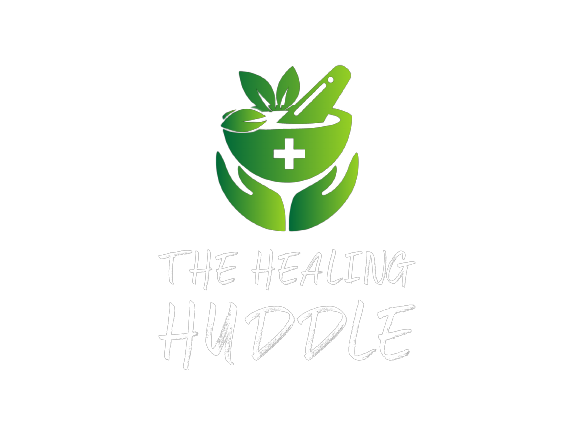

Beautiful Body. Built by You.
Check out these helpful health & wellness blogs below for healthy living tips!
Healthy Tips

Habits for Longer Life
Let's face it—being healthy isn't always fun. It means eating right, getting plenty of sleep, and making time for exercise. But adopting healthy habits actually has a positive impact on your life and can help you live longer. If you're looking for ways to stay healthy, we've provided some simple tips below that have been proven effective.

Eat a Healthy Diet
Eating a healthy diet is one of the best things you can do for your body. It's also something that many people don't do, which is why we're going to spend some time talking about it here.
A balanced diet means eating foods from all of the major food groups: grains, fruits and vegetables, dairy products (if you eat them), protein sources like meat or beans/legumes (if you eat them), and fats such as oils or nuts. Your meals should include a variety of these foods so that your body gets all the nutrients it needs each day.
Eating less fat may sound like an easy thing to do--after all, who doesn't want less fat in their diet? But getting rid of excess fat requires more than just cutting down on buttery sauces; it also means limiting processed foods like chips that are high in trans fats as well as highly processed carbohydrates such as white breads and pastas made with refined flours instead of whole grains which can cause blood sugar spikes leading over time to diabetes mellitus type 2 disease development."
Get Moving
You don't need to be a gym rat or marathon runner to reap the benefits of exercise. In fact, just 30 minutes of moderate activity five days a week can help lower your risk of heart disease and stroke, according to the American Heart Association (AHA). The AHA also recommends that adults do strength training at least twice a week in addition to aerobic exercise.
Exercise can make you feel happier because it releases endorphins--feel-good hormones that make you relax and improve your mood. Exercise also helps release tension from muscles, which can reduce stress levels overall by giving you an outlet for uncomfortable emotions like anger or frustration. Regularly participating in physical activities may even improve sleep quality by helping people deal with insomnia better than those who don't work out regularly!
Manage Stress
Stress is a normal part of life, but it can be harmful if you're not able to manage it. Stress can lead to health problems, including heart disease and high blood pressure. If you're feeling stressed out, take some time to relax with these tips:
Take a break from work. Spend an hour each day doing something relaxing like reading or listening to music instead of working on projects at home or at the office. You may even want to schedule some free time during the week and put it in your calendar so that you don't forget!
Get plenty of sleep every night--at least eight hours per night--to help your body recover from the daily stresses in life (and make sure there aren't any electronics in your bedroom!).
Get Plenty of Sleep
Sleep is an essential part of your daily routine. It's when your body repairs itself, and it can also help improve mood and memory. Sleep deprivation has been linked to heart disease, diabetes and obesity in adults; children who don't get enough sleep may have trouble concentrating in school.
There are many factors that affect how much sleep you need each night: age, gender and even the time of year (summer nights tend to be shorter than winter ones). The National Sleep Foundation recommends 7-9 hours for adults aged 18-64; babies should get 12-18 months old; preschoolers should get 11-14 hours per day; school-aged children should get 10-13 hours per night; teens need 8 1/2 - 9 1/2 hours every day on average
Exercise Often
Exercise is a great way to keep your body and mind healthy. It can help you lose weight, sleep better, feel more energetic and think more clearly.
Exercise also benefits the heart by improving blood circulation and reducing cholesterol levels in the blood. The American Heart Association recommends at least 30 minutes of moderate-intensity aerobic activity on most days of the week -- or at least 20 minutes of vigorous-intensity aerobic activity three times per week -- for people who are at low risk for cardiovascular disease (CVD).
Avoid Too Much Salt
One of the best things you can do to protect your heart is to cut back on salt. Salt is a major cause of high blood pressure, which can damage your heart and kidneys. It's also found in processed foods like breads, soups and sauces--so read the labels!
If you're looking for a replacement flavor enhancer, try herbs and spices instead: they have been shown to lower blood pressure without causing any side effects like low potassium levels that may be caused by diuretics (water pills).
Don't Smoke or Drink Alcohol in Excess
Smokers and heavy drinkers have a higher risk of developing various diseases, including:
Cardiovascular disease, which can lead to heart attacks and strokes.
Respiratory illnesses like lung cancer, chronic bronchitis and emphysema.
Liver disease such as cirrhosis (scarring) or hepatitis B or C (infections).
Socialize Regularly
Socializing regularly can help you live longer. It's not just about having fun, either--socializing is also good for your mental health, which in turn is good for your physical health.
Socializing helps with depression and anxiety, which are two of the leading causes of death in America. When you're around people who care about you and make you feel happy, it helps release happy hormones like dopamine and serotonin that improve both physical and emotional wellbeing.
Take Care of Yourself
Taking care of yourself is one of the best things you can do.
If you're not taking care of yourself, then there's a good chance that other people aren't either. It starts with your physical health: getting enough sleep, exercising regularly and eating well are all important ways to take care of your body. But it also means paying attention to how much stress you're under; if it's too much for too long (or if there are any external factors putting extra pressure on you), then this can have serious consequences for both mental and physical health.
Taking care also means looking after our minds--by keeping up with current events or reading books that interest us; by learning new skills like cooking or playing an instrument; by spending time with friends who make us feel happy rather than upset about ourselves or others...the list goes on! The benefits aren't just about feeling good now though; what's really important here is understanding how these activities help us grow as individuals over time so we don't get stuck in bad habits like watching TV all day instead of doing something more productive/fulfilling because "I don't have anything else better planned."
Conclusion
I hope this list has been helpful. Remember, the key to a long life is not just about avoiding bad habits, but also developing good ones. And while each of these tips may seem simple on its own, they can have a huge impact on your overall health and well-being as you age. So take care of yourself--and enjoy!
